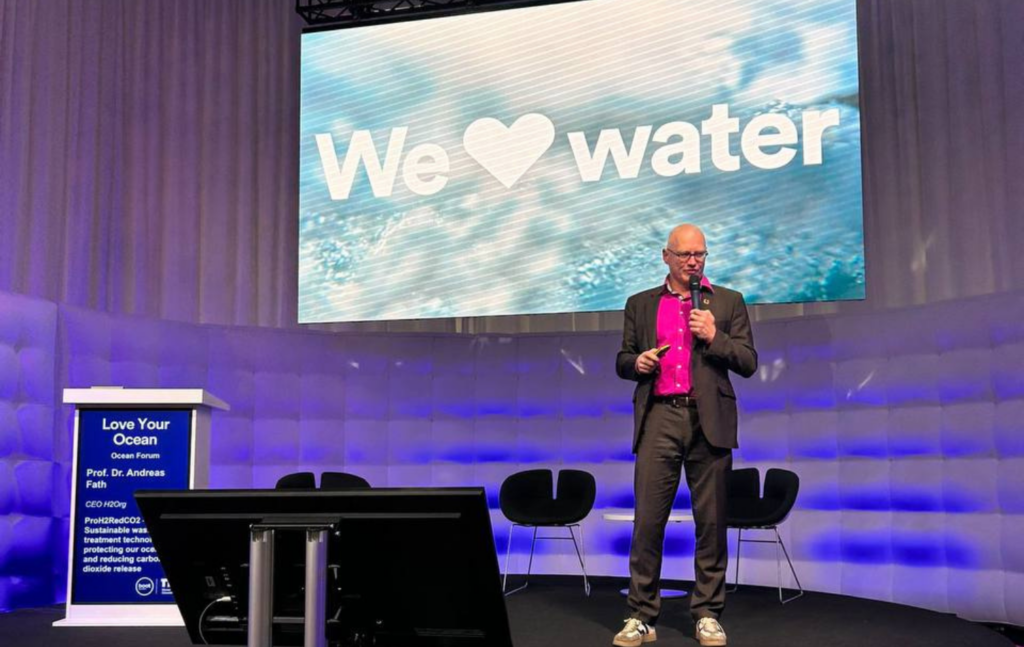A diverse format array by Prof. Dr. Andreas Fath, built on his research, teaching, and swim‑over‑rivers experiences.
Lectures, keynotes, discussions, and film screenings—scientific, sciencetainment, or health‑focused. Offered in German, English, and Spanish; available online or in‑person; customizable and combinable. Ideal for companies, NGOs, municipalities, etc.
Request for contact
You can also obtain further information or an offer directly by sending an email to info@h2org.de.

Scientific
Microplastics – Dangers & Opportunities
What are microplastics and how are they created? Do they have an impact on flora and fauna and on humans? How can we counteract this or even use the properties of microplastics in a meaningful and sustainable way?
Rivers as Mirrors of Society (Rhine, Tennessee, Danube)
Rivers reveal a lot about the people who live along them. How they farm, what medicines they take, what they eat, and how industry and households treat their wastewater. This is also evident when comparing the three rivers in different cultures.
Human Footsteps in Rivers
The lecture ‘Rivers as Mirrors of Society (Rhine, Tennessee, Danube)’ in English.
Sciencetainment
Swimming in Plastic
Instead of swimming in clean water, we are increasingly swimming in plastic. This has consequences for biodiversity and our protein sources from the world’s oceans.
Good Water – Bad Water
When is water good and when is it bad? Which parameters are important for this decision? A single value is not very meaningful. It is a whole set of values that answers this question.
Plastic – Curse or Gift?
Plastic is, on the one hand, a miracle material with countless properties, and it is also inexpensive and durable. However, this only applies when it is in use. In the environment, plastic is becoming an as yet unsolvable problem.
Rivers, Lakes, Seas: The World’s Garbage Dumps?
Around 10 million tonnes of plastic waste enter our oceans via rivers every year. Where does this waste come from, what are the consequences, and how can we reduce this amount?
CleanDanube: Swimming 2,700 km
An adventure story. The protagonist himself takes you on a journey down the Danube. A scientific expedition with many intercultural experiences and findings. Environmental education presented in a different way.
Sport meets Science
Swimming and water conservation have one thing in common: water. The highly successful concept and why it works better than conducting research in an ivory tower. Knowledge transfer in practice.
Health & Motivation
Fit into and beyond retirement
Everyone wants to stay healthy and active in society for as long as possible. A targeted and continuous exercise programme can significantly reduce injuries and illnesses, and water helps with this.
Staying motivated without burnout
There are many theories of motivation in sports psychology. None of them prepare you for swimming 8–10 hours a day for 8 weeks in a river. Extrinsic motivation does not work here; it can only be intrinsic in order to get into a ‘flow’.
Your Body Comes First
The medium we interact with most intensively is not the iPhone or laptop, not the sofa or television. No, it is our body. If it works, then everything else works too: ‘Mens sana in corpore sano’.
Have we sparked your interest?
Then send us an email for more information or to discuss your request.
Request for contact
You can also obtain further information or an offer directly by sending an email to info@h2org.de.